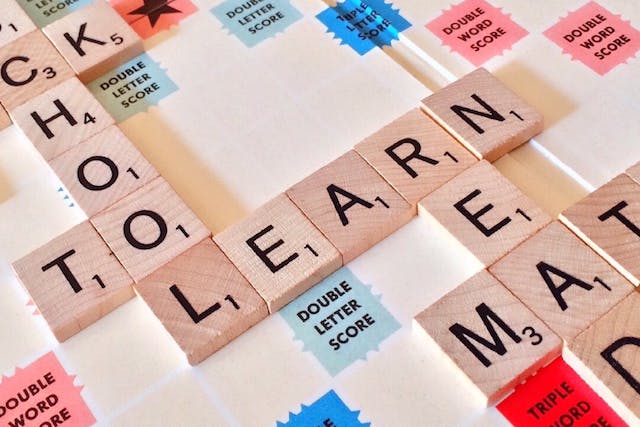IGCSE CHEMISTRY TUTOR
Why Select Chemistry for the IGCSE?
The Cambridge IGCSE curriculum supports the development of a range of transferable skills, including problem-solving, data handling, and the application of the scientific method. Important attitudes such as concern for accuracy and precision, objectivity, integrity, open-mindedness, initiative, and creativity are instilled in students. Students acquire the foundational science knowledge required to move on to more challenging coursework or careers.
The IGCSE in Chemistry teaches students about the technological world they live in and encourages them to take an analytical interest in advances in science and technology. This course covers the fundamentals of elements, compound structure, and reactions pertaining to various types of chemical compounds.

The importance of chemistry principles in improving life’s basic needs—such as food, clothing, air, shelter, health, and energy—is taught to students in IGCSE tutorials. The goal of this course is to help students understand the importance of field research and development so they can produce high-quality products and services that satisfy consumer demands.
The Cambridge IGCSE Chemistry teaching approach encourages students to think critically, be confident in themselves, and express their opinions using language from science.
- Exhibiting responsible, systematic, and secure conduct when operating independently or in a team.
- self-reflective, curious about scientific issues that affect people individually, in society, and in the environment, and appreciating the lessons they have learned
- Inventive, taking on new tasks with courage and originality
- involved, ready to pick up new scientific skills, and curious about the applications of science to everyday life. Call the Global IB Mentors for tuition right away if you need help learning chemistry. An IGCSE chemistry tutor in India can assist!
What are the IGCSE chemistry math requirements, based on which the Global IB Mentors operates?
It is expected that an IGCSE mathematics curriculum at this level of study will incorporate these requirements.
Calibration tools are allowed in every section of the test.
Counts
- Add, subtract, multiply, and divide
- Make use of fractions, decimals, ratios, percentages, and reciprocals.
- Employ standard form.
- Recognize that a calculation merely rounds the result.
- Employ the appropriate decimal places and significant figures.
Algebra
- Use whole number indices that are positive in algebraic expressions.
- Equations involving the substitution of values for quantities while utilizing standard units
- Solve any one term in simple algebraic equations once you know all the other provisions.
- Understand and apply both direct and inverse proportion.
Quantities and Geometry
- The meanings of the following terms: square, rectangle, diagonal, diameter, radius, circle, angle, and curve
- Select and use the most appropriate units for data collection and computation results.
- There are conversions between the following units: Pa and kPa, J and kJ, mg, g, and kg, as well as cm3 and dm3.
Charts, graphs, and statistics
- Using the data, create charts and graphs.
- Examine graphs and charts while considering the interpolation and extrapolation of data.
- One method for figuring out a line’s gradient, or slope, on a graph is to draw a tangent curve.
- Locate the line’s intercept on a graph, and then, if necessary, graphically extend the line.
- One way to find direct proportionality is with a graph.
- Determine the average for a set of data and make use of it.
General tips for the IGCSE chemistry preparation
IGCSE is a difficult subject. It is imperative to not take any chances when preparing for an exam of this magnitude. There needs to be very good and reliable planning. To understand the technological society they live in and develop an informed passion for technology and scientific advancements, students must master the entire curriculum. Students can grasp the principles of chemistry by means of a blend of hands-on and classroom learning.
Here are some tips for achieving high marks in IGCSE Chemistry:
Prior to memorization, recognize
A strong conceptual foundation in the subject is essential for success in chemistry. The vocabulary employed in chemistry is not commonplace. It could be difficult for students to succeed in the course if they are not familiar with the terminology used in chemistry. Their nomenclature has different meanings. Therefore, it is essential that students aim for a strong foundation from the beginning in order to ensure future success.
Make some flash cards.
Understanding a ton of equations, reaction conditions, and oxidation states is necessary for the IGCSE Chemistry course. You ought to compile all of these details into flashcards to help you remember everything. While you’re waiting for the bus or at the dentist, flash cards are a great way to review your chemistry. Recalling information will improve if you go over your flashcards frequently.
Learn carefully.
Understanding the vast amount of terminology used in the field is essential to understanding chemistry. As a result, students need to be careful about how they study and retain their knowledge. Rather than reading the textbook page after page, consider utilizing proactive remembering and other scientific inquiry techniques to increase the effectiveness of your learning.
Pupils need to actively retrieve the information from their recollections. Through active recall, students learn how to retrieve the relevant information when they see keywords. With a lot of experience, retrieving information will become easier, and learning chemistry will naturally become less scary. For more information, give the Global IB Mentors IGCSE chemistry tutor in Delhi, India a call!
Man becomes perfect through practice.
The best way to remember chemical reactions is through practice. Once you’ve completed your rewriting, try recording every response on a particular subject. It can be beneficial to practice with past exam questions to get an idea of the kinds of questions to expect.





